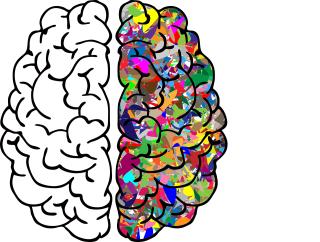Positive Psychology
Why You Should Say "And," Not "But"
Using “and” instead of “but” increases psychological flexibility.
Posted June 24, 2023 Reviewed by Devon Frye
Key points
- The word “but” can limit functioning by discounting, excluding, or dismissing parts of our experience.
- "And” allows for complexity and dichotomy in experience and acceptance of your full experience.
- Acknowledging all aspects of experience enables making intentional choices about how you want to act.
- A quick way to remember the helpfulness of using “and” vs. “but” is through the phrase “Get off your buts.”

We frequently use the word “but” in everyday conversation. “I want to call my friend, but I'm too tired.” “I’m sorry I snapped at you, but you were being defensive.” “I was planning to go for a short walk, but my legs are sore.” “I would go to the party, but I'm feeling too anxious.”
“But” can seem innocuous. Yet habits of speech—in this case, using “but”—can limit functioning, particularly when it comes to how we experience our thoughts, feelings, and sensations.
When we use “but,” we naturally focus on whatever followed the “but” and tend to ignore the first part of our experience. “But” can discount, exclude, dismiss, negate, or cancel what precedes it. In the example, “I want to call my friend, but I'm too tired,” it is common to focus on being tired and negate the desire to connect with a friend.
Intentionally using the word “and” allows for complexity and dichotomy in your experience. Experience is rarely comprised of only one thought, feeling, or physical sensation. “And” acknowledges, includes, and expands what precedes it.
Dialectical behavior therapy (DBT) is a type of cognitive behavior therapy that focuses on how to live in the present moment, regulate emotions, develop healthy relationships, and cope with distress. The D in DBT, dialectical, means the existence of opposites and how both can be true.
Multiple things, even contradictory things, can occur at the same time. If I say, “I want to go for a short walk, and my legs are sore” I am acknowledging that both are happening. I can be sore (assuming I am not in acute pain) and choose to go for a walk.
“And” allows both statements to be true at the same time. It allows for behavioral options and psychological flexibility. If you acknowledge all aspects of your experience, you can make a more intentional choice about how you want to act vs. focusing on only one aspect of your experience and acting out of habit or comfort.
“And” enables cognitive flexibility and the ability to fully embrace the complexity of emotional experience. You can be in pain and enjoy the present moment, for example. You don’t have to choose or narrowly focus on certain aspects of your experience. “And” also reminds us that we don’t have to wait for unpleasant feelings or circumstances to change for us to take action. You can acknowledge your full experience and take helpful action now.
DBT is centered around one overarching dialectic: acceptance and change. To create change, you have to first accept your current circumstances and experiences. Your experiences are valid and it is important to accept them while making helpful changes that move you toward your goals and improved quality of life.
Using the word “and” instead of “but” is a skill. It is something that can be practiced and strengthened, by intentionally replacing “but” with “and” when you talk to yourself and others. A skill that can increase your ability to notice and accept your full experience.
A quick way to remember the helpfulness of using “and” vs. “but” is through the phrase “Get off your buts.”


